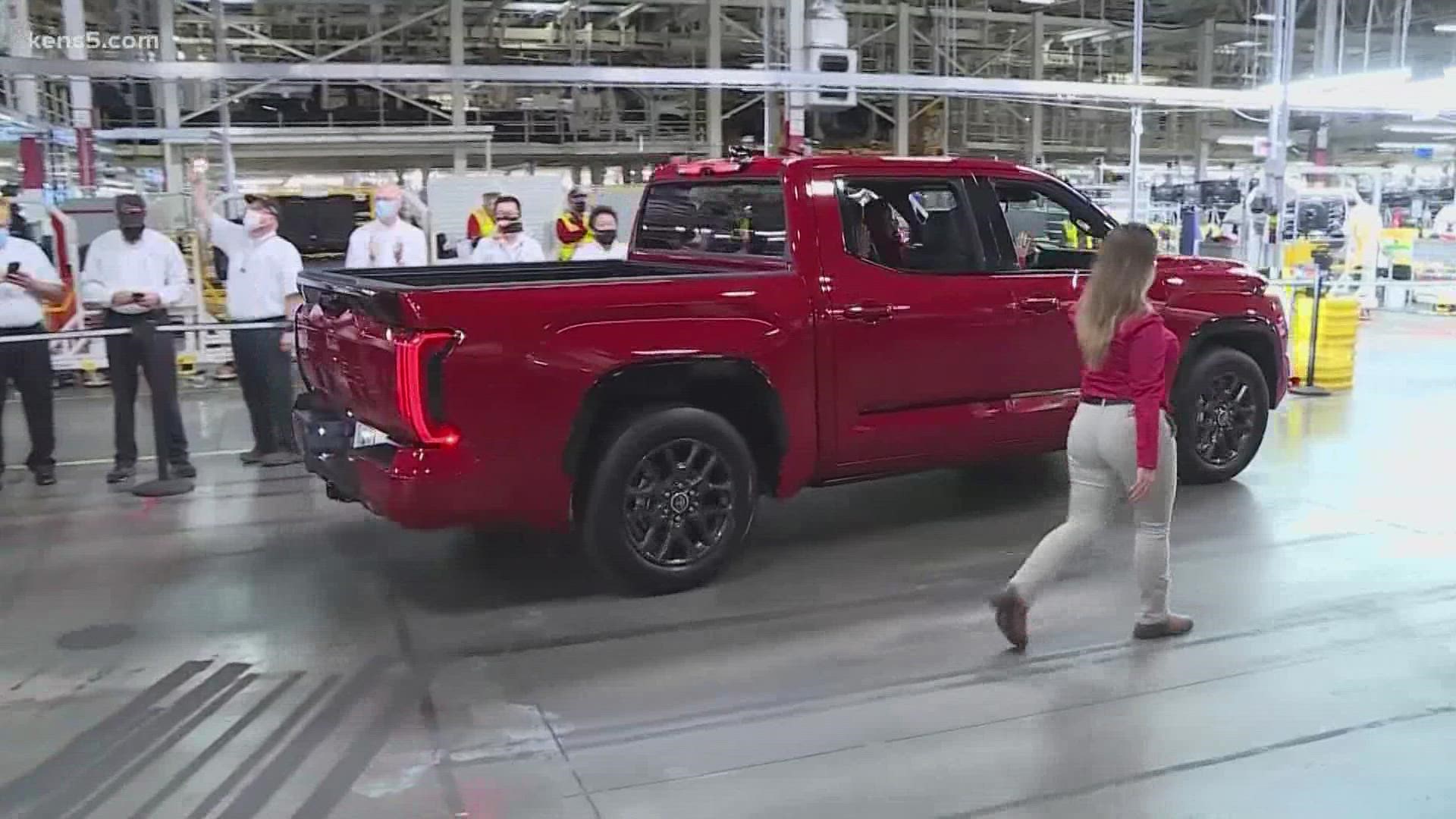SAN ANTONIO — Toyota will produce roughly 25,000 fewer cars next month than was expected, the carmaker told KENS 5.
This week, the manufacturer slashed in half production at its San Antonio plant. A spokesperson said the company does not anticipate layoffs and is "committed to long-term employment stability with recruitment and new hire efforts continuing week over week."
"We have made a temporary scheduling adjustment by consolidating production from two shifts to one shift," the spokesperson wrote in a statement. "We are evaluating this condition on a weekly basis."
Workers who would otherwise be building Toyota trucks will continue to come to work for training sessions and "optimization activity."
The carmaker blames COVID-19 and supply chain shortages for the disruption, demonstrating continued manufacturing problems that affect the entire auto industry.
"It's a real problem," said Toby Russell, Co-CEO of Shift.com, an online auto marketplace.
Auto manufacturers continue to vie for semiconductor microchips. Carmakers face tough competition for the technology.
During the pandemic, Russell says waning demand pushed chip suppliers to tailor their product for purposes unrelated to cars. Auto manufacturers are now struggling to find the type of semiconductors their designs require.
"It's a long-term issue," he said. "We're talking, like, 2025 before supply and demand are back in proper alignment."
Russell says manufacturers have options to exhaust before layoffs are required or plants shut down.
"There's a lot of creativity in trying to work through these supply chain issues, up and down the line," he said.
Some manufacturers have cut luxury features that required extra chips. Others are leaving uncompleted vehicles at the end of the assembly line, only to be finished when microchips become available.
The supply hiccups continue to put pressure on auto dealers, who have struggled to keep cars on dealership lots. In turn, used vehicle prices are soaring.
"The car in your driveway is worth 30 percent to 40 percent more now than it was at the beginning of last year," Russell said.
To avoid paying exorbitant prices, car buyers should look for used vehicles between four and six years old with only one prior owner and no reported accidents, Russel said.
He adds that it's important to carefully assess the vehicle, since private sellers could take advantage of a frenzied market and dump a lemon on an unsuspecting customer.

